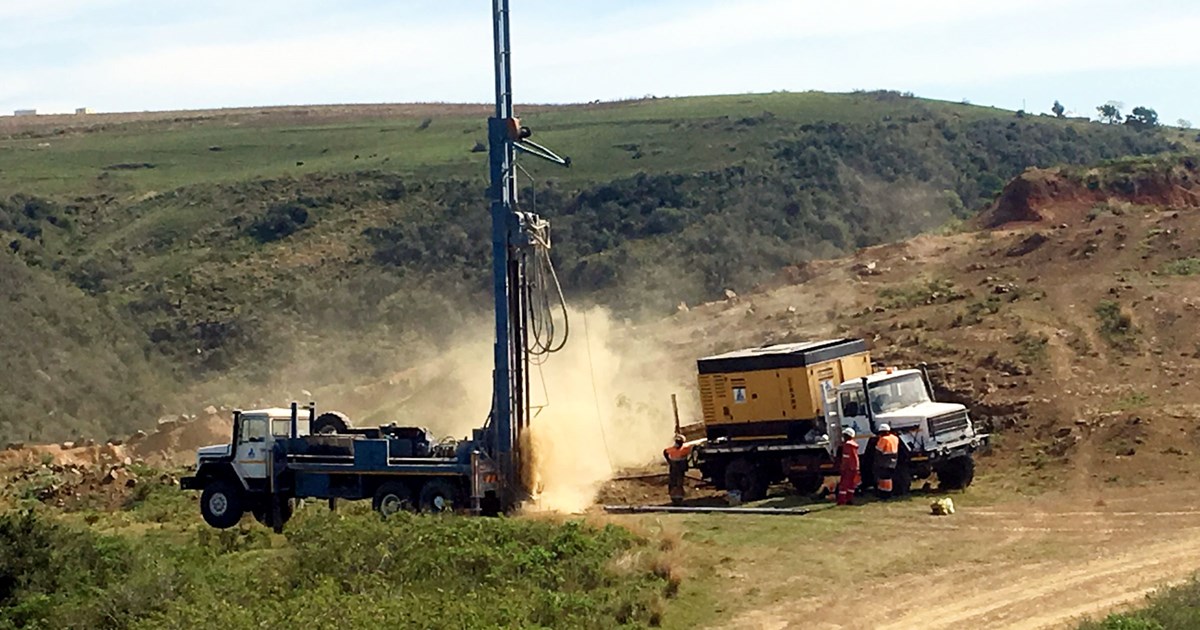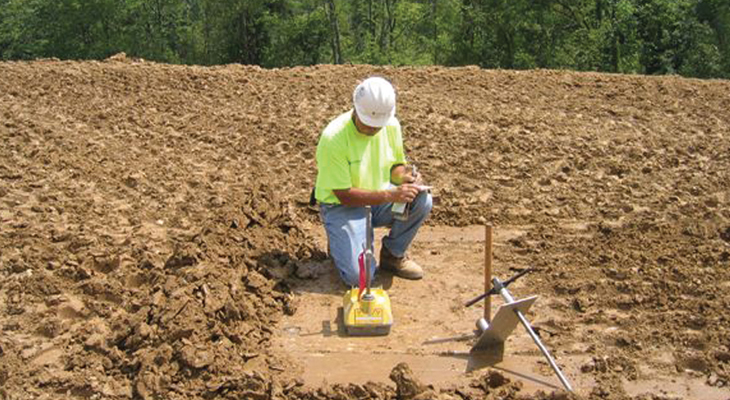Checking out the Function of a Geotechnical Engineer Description and Obligations
Checking out the Function of a Geotechnical Engineer Description and Obligations
Blog Article
The Relevance of Geotechnical Engineering in Resolving Ecological Difficulties and Enhancing Construction Safety And Security
Geotechnical engineering offers as a foundation in the crossway of environmental stewardship and building and construction safety and security, giving vital insights right into the actions of soil and rock under numerous problems. By implementing tactical site examinations and tailored reduction measures, geotechnical designers play an important duty in safeguarding both human lives and eco-friendly honesty.

Function of Geotechnical Design
Geotechnical design plays an essential duty in the layout and building of framework by attending to the behavior of soil and rock materials under numerous conditions. This field of engineering is necessary for understanding the communication between structures and the ground, that includes figuring out the load-bearing capacity of soil, assessing security, and predicting prospective negotiation or failure.
Geotechnical engineers are accountable for performing website investigations, which involve tasting and testing soil and rock to collect data on their chemical and physical buildings. This details is important for making structures, keeping wall surfaces, and other earth-retaining frameworks that make sure security and longevity. Furthermore, geotechnical design educates the choice of appropriate building techniques and products, therefore reducing dangers related to dirt habits.
Additionally, the assimilation of geotechnical design principles into metropolitan planning and ecological monitoring is important for attending to difficulties such as ground contamination and groundwater management. By recognizing geotechnical factors, engineers can create sustainable solutions that enhance the strength of facilities against natural dangers, while additionally advertising ecological stewardship. Inevitably, the function of geotechnical engineering is important for attaining safe, long lasting, and ecologically mindful building and construction techniques.
Soil Disintegration Reduction
Soil erosion presents a significant threat to both environmental stability and infrastructure integrity, influencing approximately 24 billion loads of fertile soil shed annually worldwide. This sensation is worsened by variables such as deforestation, urbanization, and poor farming methods. Geotechnical engineering plays a pivotal role in creating effective dirt erosion reduction methods that protect both the setting and building and construction tasks.
One approach involves the implementation of erosion control techniques such as plants growing, which stabilizes soil with origin systems. In addition, the building of maintaining balconies and walls can successfully lower surface runoff and safeguard vulnerable areas from disintegration. Proper drainage style is likewise vital; it minimizes water build-up and guides excess runoff far from vital frameworks.
In addition, geotechnical engineers employ dirt stablizing techniques, such as the application of geotextiles and biodegradable floor coverings, to boost soil cohesion and stop deterioration - about geotechnical engineering. Routine monitoring and assessment of erosion-prone websites make it possible for timely interventions, making sure long-lasting sustainability. By integrating these techniques, geotechnical engineering not only alleviates the effects of soil erosion but also adds to the resilience of infrastructure against ecological obstacles, inevitably fostering a safer and extra sustainable built setting
Groundwater Defense Techniques
Groundwater functions as an essential resource for drinking water, agriculture, and industrial procedures, making its defense crucial for ecological sustainability and public health and wellness. Efficient groundwater protection approaches are essential in alleviating contamination risks and making sure the longevity of this resource.

Routine surveillance of groundwater quality is also vital, allowing very early discovery of contamination resources and assisting in timely remediation initiatives. Using sophisticated innovations, such as geophysical studies and remote picking up, help in determining possible hazards to groundwater reserves.
Moreover, public education and stakeholder engagement are crucial, fostering community assistance for groundwater defense campaigns. geotechnical engineer description. By integrating regulatory steps, technological Bonuses innovations, and area involvement, we can develop a detailed framework that safeguards groundwater resources while promoting lasting growth and construction techniques
Landslide Danger Management
Landslides posture significant hazards to both human safety and facilities, making efficient risk monitoring strategies vital. Geotechnical design plays an essential duty in recognizing, assessing, and mitigating landslide dangers. A detailed understanding of incline security, dirt auto mechanics, and hydrology is important for developing efficient threat administration strategies.
The primary step in landslide threat management includes thorough site examinations, which include geological mapping and soil testing. These examinations assist designers evaluate the possibility for landslides by recognizing important elements such as incline angles, dirt composition, and water material. Using innovative technologies such as remote picking up and geophysical surveys can enhance the accuracy of these analyses.
Once threats are determined, proper reduction procedures can be applied. These might consist of design remedies such as maintaining wall surfaces, drainage systems, and slope stabilization strategies. Keeping an eye on systems should be developed to discover indications of ground motion and modifications in water levels, enabling for proactive treatments.

Enhancing Building And Construction Safety And Security
Building and construction websites usually offer a myriad of threats that can threaten employee security and job stability. Geotechnical engineering plays a crucial role in enhancing construction safety and security by giving crucial understandings into subsurface problems. Via comprehensive soil and rock analysis, geotechnical designers can recognize prospective risks, such as dirt instability, groundwater concerns, and seismic vulnerabilities, which might jeopardize the security of building and construction activities.
Executing geotechnical options, such as proper structure design and the use of preserving structures, alleviates these risks substantially. These remedies not only make certain the stability of the structures being constructed but likewise develop a safer working atmosphere for building and construction personnel.
In addition, fostering a culture of safety with training and adherence to established security methods better boosts construction site safety. By integrating geotechnical competence right into the preparation and execution phases, building jobs can accomplish greater safety and security criteria, inevitably shielding employees and making certain effective task conclusion.
Final Thought
In final thought, geotechnical engineering acts as a vital self-control in advertising and taking on ecological difficulties construction safety. Via reliable soil erosion reduction, groundwater defense approaches, and landslide threat monitoring, geotechnical designers add to the advancement of resilient framework. The combination of these methods fosters a more check out here secure building environment and boosts the sustainability of civil design jobs. Inevitably, the expertise of geotechnical designers is essential read what he said in protecting both natural deposits and human lives against prospective risks.
Geotechnical engineering serves as a foundation in the crossway of environmental stewardship and building and construction security, supplying essential understandings right into the habits of soil and rock under numerous conditions. Geotechnical engineering notifies the choice of proper construction approaches and materials, thereby minimizing risks linked with soil habits.
Geotechnical design plays a pivotal role in establishing reliable dirt erosion mitigation methods that guard both the setting and construction jobs.
Additionally, geotechnical designers use dirt stabilization techniques, such as the application of geotextiles and naturally degradable floor coverings, to improve dirt communication and protect against degradation. Through extensive dirt and rock evaluation, geotechnical designers can recognize possible threats, such as dirt instability, groundwater concerns, and seismic susceptabilities, which might compromise the safety of construction activities.
Report this page